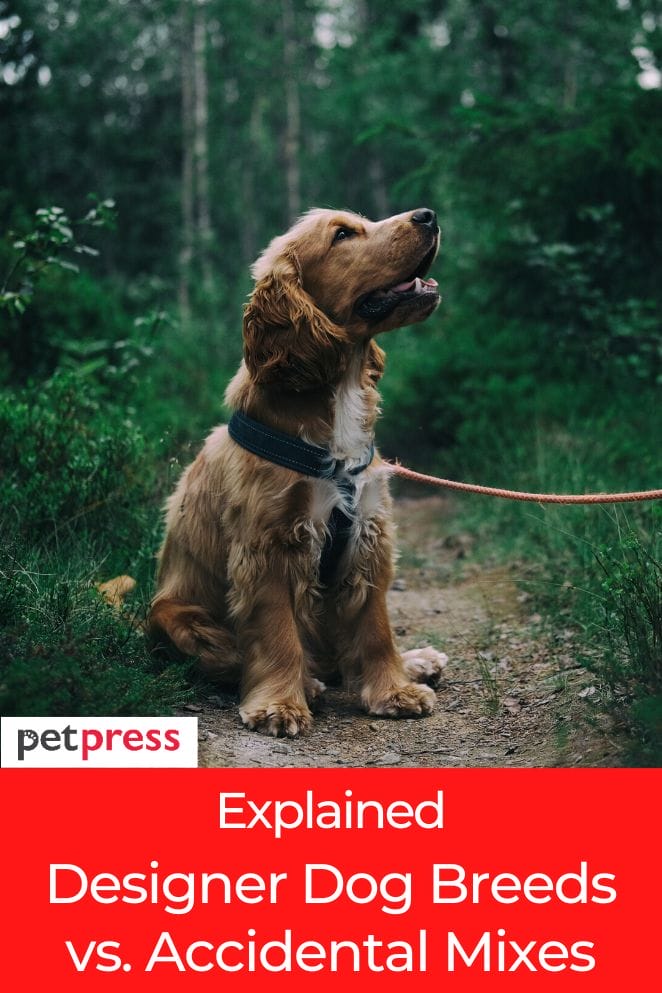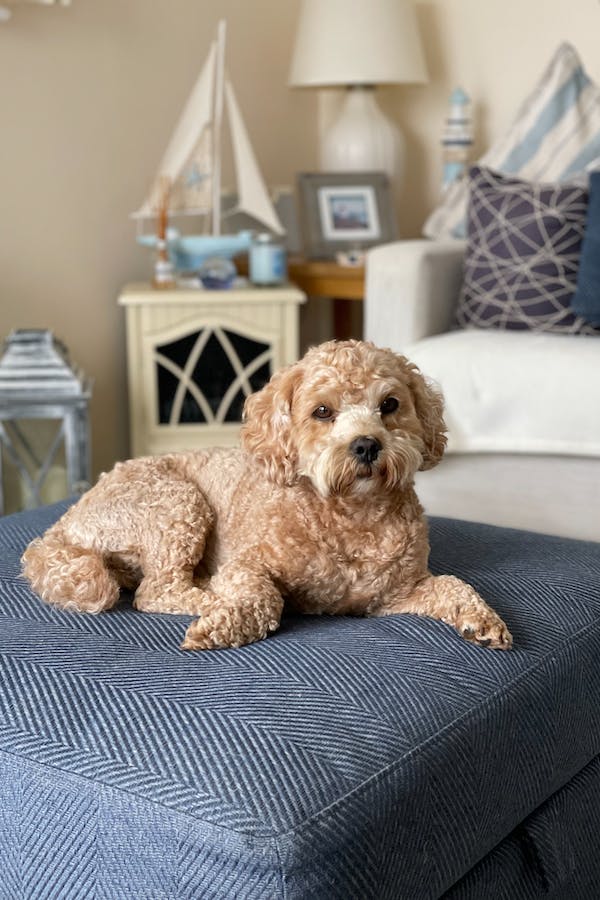
When it comes to choosing a furry companion, the world of dogs offers a vast array of options.
From purebred dogs to mixed breeds, the choices can be overwhelming.
However, two categories that often come up in discussions are designer dog breeds and accidental mixes.
Designer dog breeds are the result of intentional crossbreeding between two purebred dogs, while accidental mixes, also known as mutts, are the result of unplanned breeding between two or more breeds.
In this article, we’ll explore the advantages and challenges of both designer dog breeds and accidental mixes, highlight key differences between the two, and provide a comprehensive guide to help you make an informed decision.
So, let’s dive into the world of designer dog breeds and accidental mixes!
Designer Dog Breeds
Designer dog breeds, also known as hybrid dogs, are the result of intentional crossbreeding between two purebred parents of different breeds, with the aim of creating puppies that combine the best characteristics of each parent.
These intentional crossbreeds are highly popular due to their unique combinations of traits, making them sought after as beloved family pets and companions.

Popular designer dog breeds
Some of the most popular designer dog breeds include:
- Goldendoodle (Golden Retriever + Poodle): This energetic and friendly crossbreed is a favorite among dog enthusiasts, known for its hypoallergenic coat and versatile sizes.
- Labradoodle (Labrador Retriever + Poodle): The Labradoodle, often recognized as the first designer dog, is prized for its intelligence, easy-going nature, and hypoallergenic coat.
- Puggle (Pug + Beagle): A charming mix of the Pug and Beagle, the Puggle is celebrated for its affectionate demeanor and adorable appearance.
- Cockapoo (Cocker Spaniel + Poodle): The Cockapoo, a cross between the Cocker Spaniel and Poodle, is beloved for its friendly disposition and low-shedding coat.
- Schnoodle (Schnauzer + Poodle): The Schnoodle is a highly friendly crossbreed, combining the traits of the Schnauzer and Poodle, making it an excellent companion.
Advantages
Some of the advantages of designer dog breeds include:
Predictable size
Designer dog breeds are intentionally bred to have a predictable size, providing potential owners with a clear understanding of the dog’s eventual size.
This predictability is advantageous for individuals living in various environments, such as apartments or houses with specific space constraints.
Temperament
Crossbreeding allows for the blending of traits from different breeds, enabling the development of dogs with desirable temperaments.
For instance, a designer dog may exhibit a friendly and affectionate nature, making them well-suited as companions for families, individuals, or those seeking specific personality traits in a pet.
Reduced shedding
Many designer dog breeds are purposefully bred to have a hypoallergenic coat, which reduces shedding.
This characteristic is particularly beneficial for individuals with allergies, as it minimizes the amount of dander and hair in the environment, making these breeds more suitable for allergy-sensitive households.
Challenges
However, there are also some challenges associated with designer dog breeds, including:
Higher cost
One of the challenges associated with designer dog breeds is their higher cost compared to purebred dogs or accidental mixes.
The intentional breeding of specific traits and the demand for unique combinations contribute to the elevated price tag.
Prospective owners should be prepared for the financial investment associated with acquiring a designer dog.
Less genetic diversity
Crossbreeding, while creating unique combinations, may result in less genetic diversity.
Limited genetic diversity can pose challenges, potentially increasing the risk of inherited diseases.
Responsible breeding practices and thorough genetic testing become essential to mitigate these risks and ensure the long-term health of designer dog breeds.
Limited availability
Designer dog breeds may not be as widely available as purebred dogs or accidental mixes.
This limited availability can be attributed to the intentional and selective breeding required to achieve specific traits.
Prospective owners may need to invest time in researching reputable breeders or considering adoption options to find the desired designer breed.
Accidental Mixes (Mutts)
Accidental mixes, also known as mutts, are dogs that are the result of unplanned breeding between two or more breeds.
These dogs often have a unique appearance and a blend of physical and behavioral traits inherited from their parent breeds.
While they offer increased genetic diversity and a distinct charm, they can also have unpredictable traits and unknown health histories.

Popular accidental mixes of dog breeds
Some popular accidental mix dog breeds, also known as mutts, include:
- Labrador Retriever Mixes: Labradors are often mixed with other breeds, resulting in friendly and versatile companions.
- Golden Retriever Mixes: Golden Retrievers are commonly mixed with other breeds, producing affectionate and loyal mixed-breed dogs.
- German Shepherd Mixes: German Shepherds are frequently crossed with other breeds, leading to intelligent and protective mixed-breed dogs.
- Boxer Mixes: Boxers are known to be mixed with various breeds, resulting in energetic and playful mixed-breed companions.
- Pit Bull Mixes: Pit Bulls are often crossed with other breeds, yielding strong and loyal mixed-breed dogs.
Advantages
Some of the advantages of accidental mixes include:
Unique appearance
Accidental mixes often boast a unique appearance that distinguishes them from purebred dogs or intentionally bred designer breeds.
Their distinctive blend of features can make them visually captivating and appealing to individuals seeking a one-of-a-kind companion.
Potential health benefits
Accidental mixes, resulting from the combination of different breeds, may experience potential health benefits through increased genetic diversity.
This diversity can reduce the risk of inherited diseases commonly associated with specific breeds, contributing to the overall well-being and longevity of these dogs.
Affordability
One notable advantage of accidental mixes is their affordability compared to purebred dogs or intentionally bred designer breeds.
The lack of intentional breeding for specific traits often translates into a more accessible cost for individuals seeking a loving and unique canine companion without the price tag associated with purposefully bred dogs.
Challenges
However, there are also some challenges associated with accidental mixes, including:
Unpredictable traits
Accidental mixes can inherit a combination of traits from both parent breeds, leading to an unpredictable appearance, temperament, and health profile.
This unpredictability can present challenges for prospective owners who may prefer more certainty in these aspects of their future pet.
Unknown health history
Accidental mixes may come with an unknown health history, making it challenging for owners to anticipate and manage potential health issues effectively.
Without a documented lineage, understanding the genetic predispositions or past health concerns of the dog becomes more complex.
Behavioral quirks
Due to their mixed heritage, accidental mixes may exhibit behavioral quirks that stem from the blending of different breed traits.
This may necessitate additional training and socialization efforts to ensure the dog becomes a well-adjusted and obedient member of the family.

Key Differences: Designer Dog Breeds vs. Accidental Mixes
| Category | Designer Dog Breeds |
Accidental Mixes
|
| Breeding | Intentional crossbreeding between two purebred dogs |
Unplanned breeding between two or more breeds
|
| Predictable Traits | Size, temperament, shedding | None |
| Genetic Diversity | Less genetic diversity |
Increased genetic diversity
|
| Availability | Limited availability | Widely available |
| Cost | Higher cost | More affordable |
| Health | Increased risk of inherited diseases |
Potential health benefits
|
| Appearance | Predictable appearance |
Unique appearance
|
| Temperament | Predictable temperament |
Unpredictable temperament
|
Conclusion
The decision to choose between designer dog breeds and accidental mixes ultimately depends on your individual circumstances and preferences.
Designer dog breeds offer predictable traits and a desirable appearance, but they can be more expensive and have less genetic diversity.
Accidental mixes offer a unique appearance and potential health benefits, but they can have unpredictable traits and an unknown health history.
By considering the advantages and challenges of both designer dog breeds and accidental mixes, you can make an informed decision and find the perfect furry companion to enrich your life with love, joy, and endless tail wags.
FAQs
Designer dog breeds are not recognized as actual breeds by the American Kennel Club, as they are the result of crossbreeding between two purebred dogs. However, there are hybrid dog registries that may offer some sort of documentation.
Accidental mixes may have a lower risk of inherited diseases due to their increased genetic diversity. However, they may still face health issues, and it’s important to provide them with proper care and attention.
Yes, accidental mixes can be trained and socialized effectively with proper care and attention. However, they may exhibit behavioral quirks due to their mixed heritage, requiring additional training and socialization.
- Does Cat Litter Melt Ice? The Complete Guide to Winter Safety - January 30, 2026
- Happy Tail Dogs: Understanding This Common Canine Condition - January 29, 2026
- How Cold Can Outdoor Cats Handle? Feline Winter Safety - January 27, 2026


GIPHY App Key not set. Please check settings